Exploring the Psychological Depths of Gaming Villains
26 December 2024
Villains. They’re the ones we love to hate and, let’s admit it, sometimes just love. In gaming, the bad guys (or gals) are often what make the story come alive. They’re not just there to give the hero someone to fight—they’re complex, layered, and, in some cases, more interesting than the protagonists themselves. But why are gaming villains so compelling? What makes us remember characters like Sephiroth, GLaDOS, or Vaas long after we’ve beaten the game? Let’s dive into the fascinating psychology behind gaming villains and unravel why we just can’t get enough of them.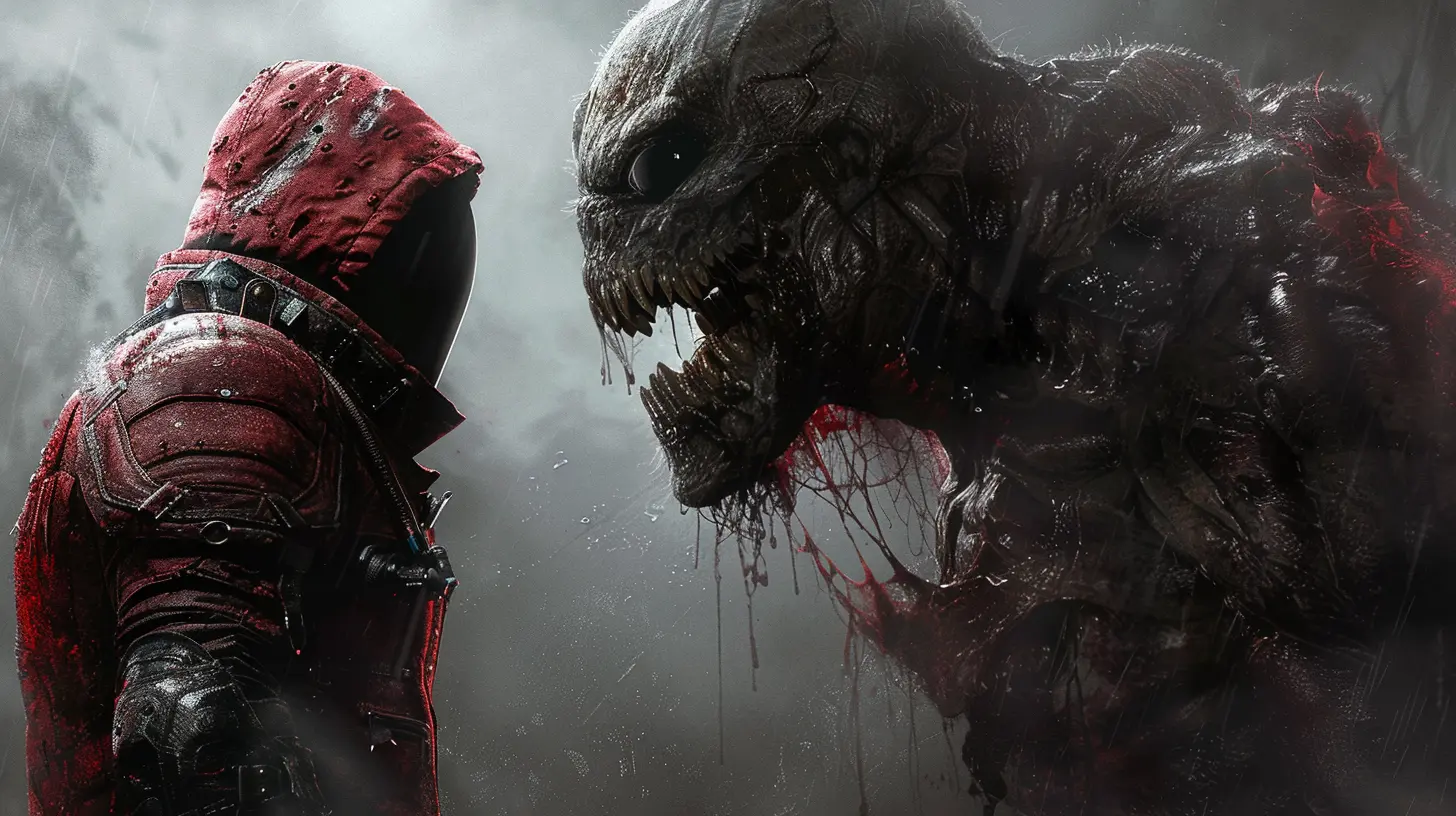
The Role of Villains in Gaming
Before we get into the nitty-gritty, let’s take a step back. What’s the point of a villain in a game anyway? Sure, they’re there to create conflict and obstacles for the hero, but it’s more than that. Villains are often mirrors of the protagonists—darker, twisted reflections of what the hero could become if they made different choices. They challenge not just the hero’s strength but also their morals, values, and resilience.Think about it: how boring would a game be without a worthy adversary? Without Bowser, Mario would just be a plumber parkouring for fun. Without Ganondorf, Link’s adventures wouldn’t carry the same sense of urgency. Villains give us stakes, and they make the victories feel hard-earned and meaningful.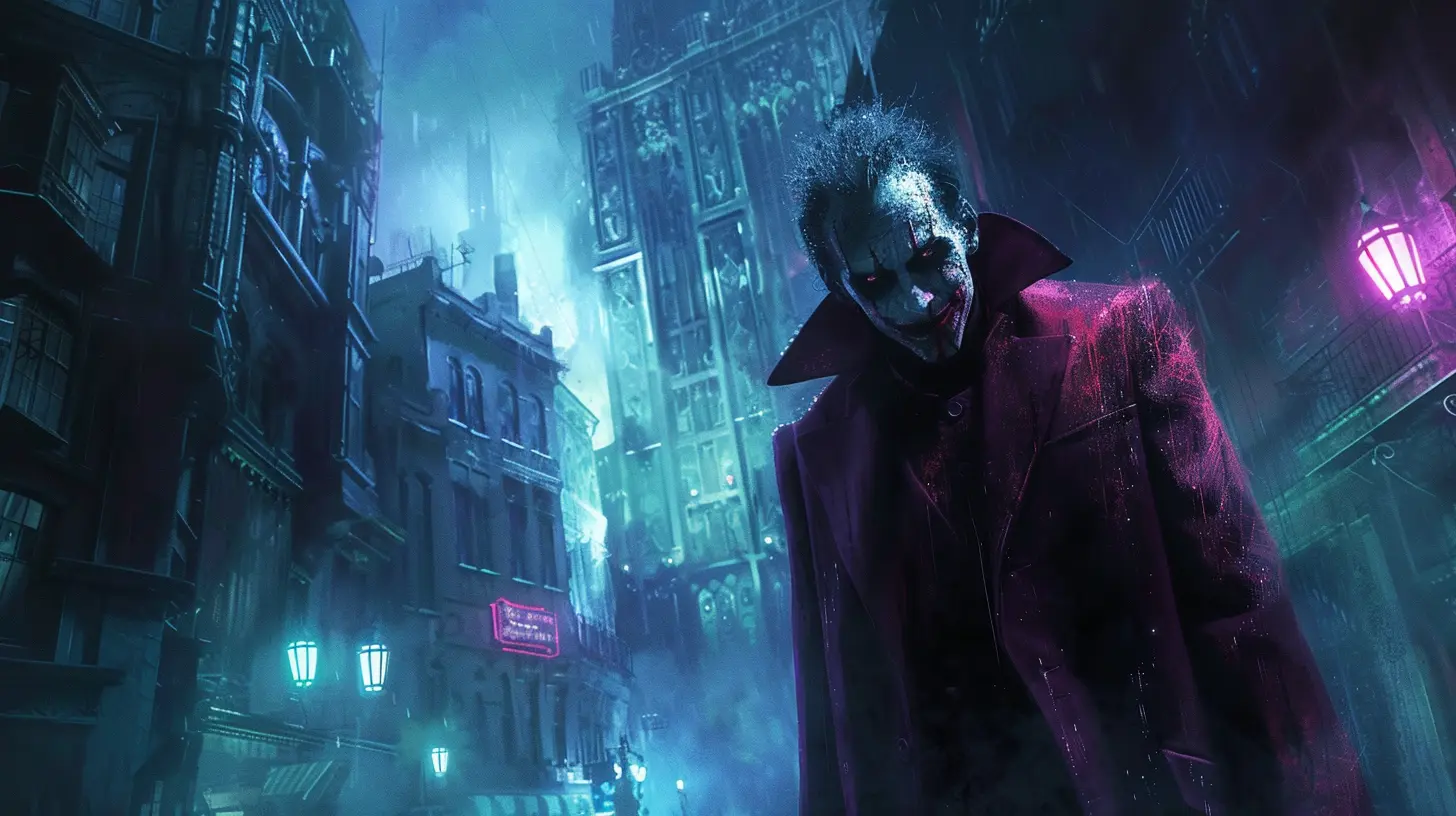
The Psychology Behind a Great Villain
A great villain doesn’t just pop out of nowhere. There’s usually something deeper going on under the surface—something that makes them relatable, even if we don’t agree with their actions. Let’s break down some of the psychological aspects that make gaming villains so captivating:1. Humanizing Their Motives
A truly memorable villain isn’t evil for the sake of being evil. They have reasons, even if those reasons are warped. Maybe they’ve experienced deep trauma, or they genuinely believe their actions will benefit the world. A good example? Thanos from the Marvel universe (and yes, video games based on him exist too). He believes wiping out half the universe is the only way to save it. Horrifying? Absolutely. But in his mind, he’s the hero of the story.In gaming, take Andrew Ryan from BioShock. He’s not a mustache-twirling cartoon villain; his entire philosophy is rooted in objectivism and the belief in personal freedom (even when that freedom spirals into chaos). You don’t have to agree with him, but you can kind of see where he’s coming from.
2. The Sympathetic Backstory
Ever noticed how a villain with a tragic past tends to hit harder emotionally? It’s because their backstory makes them feel… human. We get a peek into why they turned out the way they did.Sephiroth from Final Fantasy VII is a prime example. His descent into madness wasn’t random—it was driven by the discovery of his origins and the lies fed to him by Shinra Corporation. Similarly, Arthas Menethil from Warcraft started as a noble paladin but became the Lich King due to his desperation to save his people. These tragic arcs make you wonder: “What if things had been different? Could they have been saved?”
3. Charisma and Presence
Here’s the thing: a bland villain is forgettable. The best villains own the screen (or your monitor), commanding attention with their charisma, wit, or sheer unpredictability. Think Vaas Montenegro from Far Cry 3. His monologue about the definition of insanity? Pure gold. He’s erratic, terrifying, and yet, you can’t look away.And let’s not forget GLaDOS from Portal. She’s an AI antagonist who is as hilarious as she is sinister. Her dry humor and constant insults make her oddly endearing, even while she’s trying to kill you. Villains like these demonstrate that personality goes a long way in making an antagonist memorable.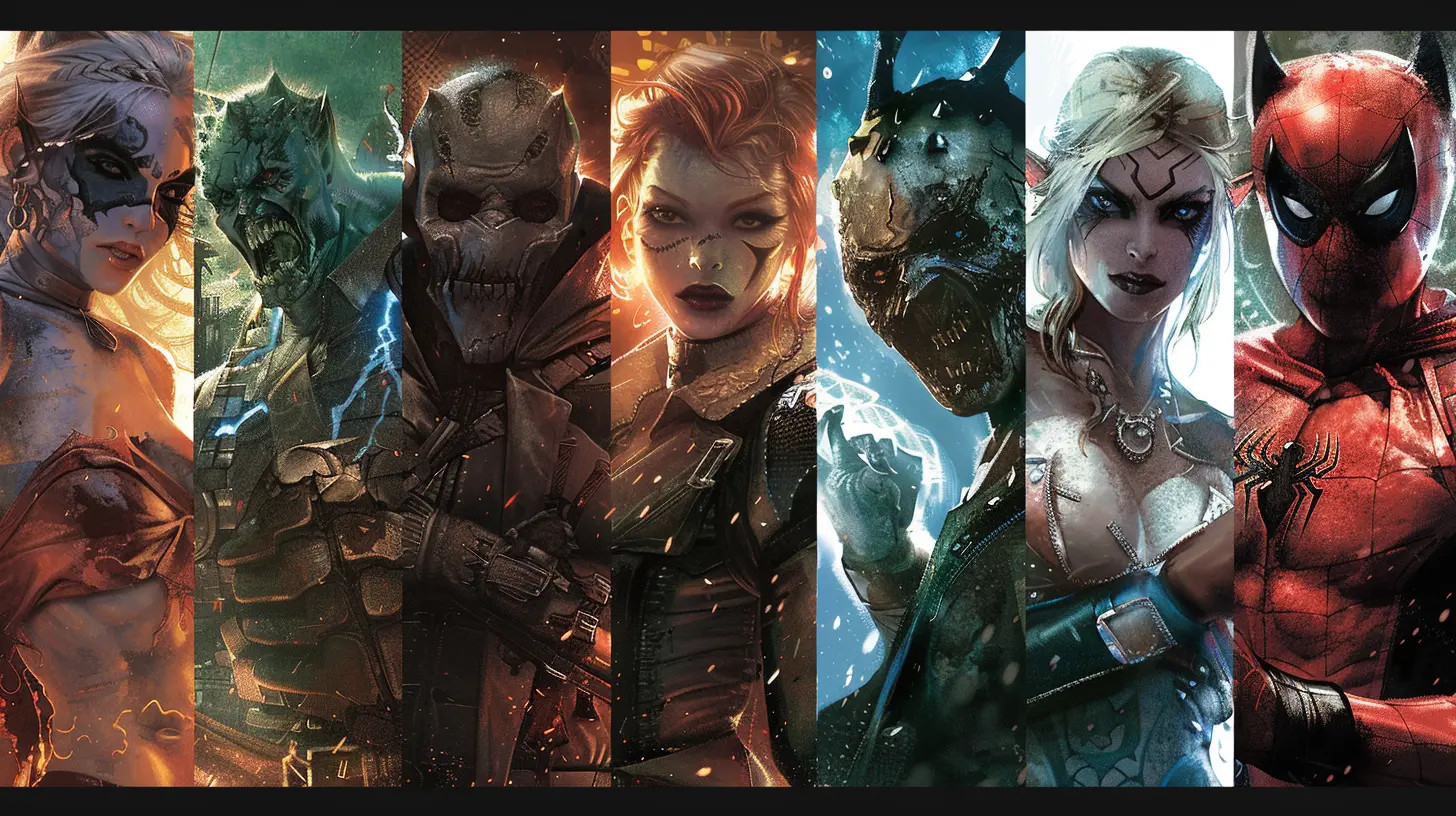
Why Do We Relate to Villains?
Alright, let’s get real for a second. Deep down, don’t we all have a tiny soft spot for villains? They represent the parts of human nature we don’t always talk about—the anger, the insecurity, the feelings of loss or rejection. They let us explore darker elements of the human psyche without actually indulging in them ourselves.Villains also give us a glimpse of what happens when someone gives in to their worst impulses. It’s kind of like looking into a mirror and thinking, “Wow, I could’ve taken a very different path in life.”
Ever heard of the term “anti-villain”? These are characters who are technically antagonists but have redeeming qualities or noble intentions. Think about Haytham Kenway from Assassin’s Creed III. He’s a Templar, which automatically makes him the “enemy,” but his wit, charm, and logical arguments make him more than just a bad guy.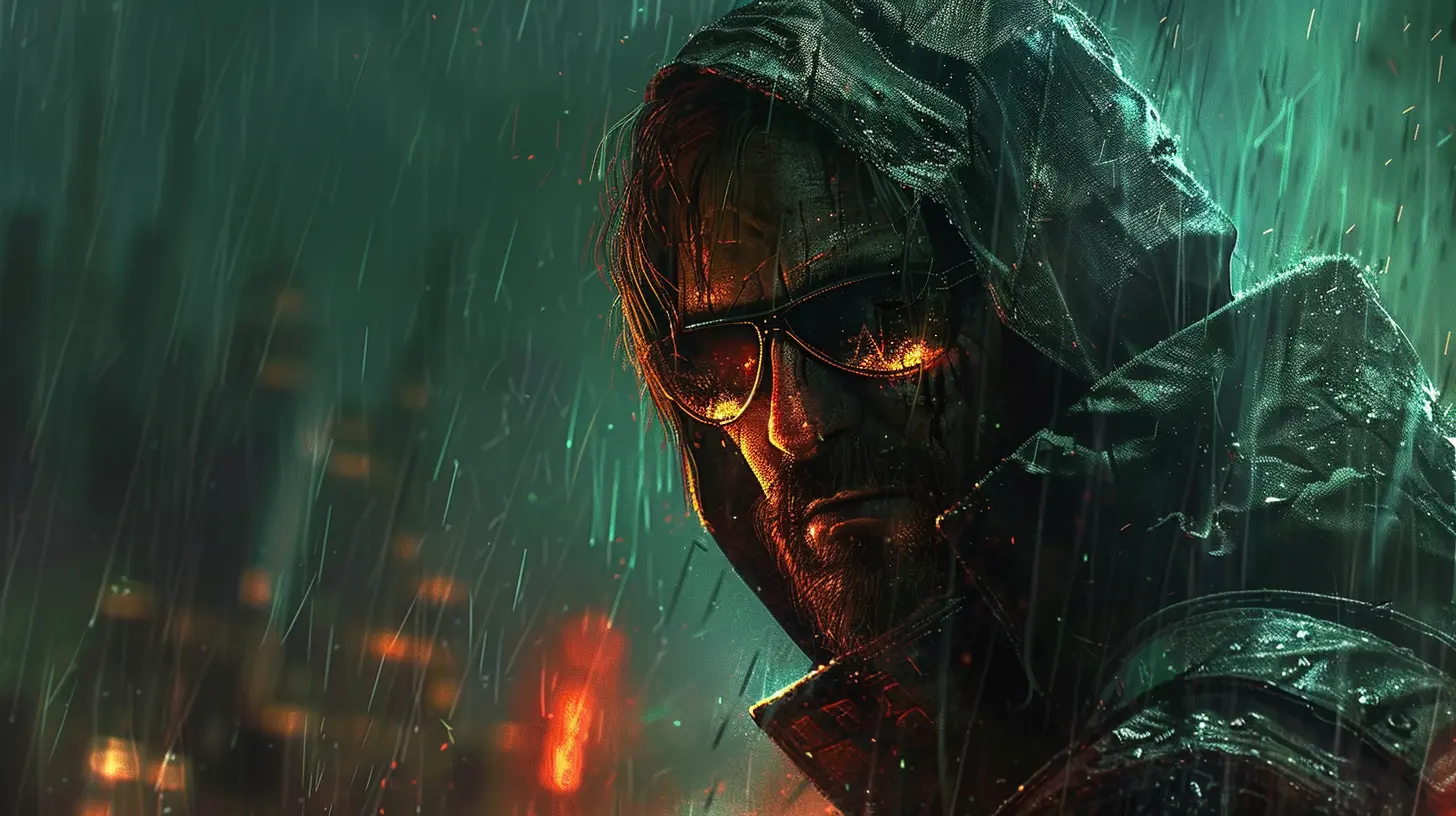
Gaming Villains Who Left a Mark
Let’s take a quick look at some iconic villains who’ve left players simultaneously terrified and fascinated:1. Sephiroth (Final Fantasy VII)
Ah, the one-winged angel. Sephiroth’s descent into villainy is as much a story of self-discovery as it is one of vengeance. He’s not just evil; he’s broken, betrayed, and utterly consumed by his purpose.2. GLaDOS (Portal)
This sarcastic AI takes passive-aggressiveness to a whole new level. Whether she’s mocking your weight or subjecting you to deadly puzzles, GLaDOS’s personality is a mix of humor and menace. It’s hard not to admire her, even as she’s plotting your demise.3. Vaas Montenegro (Far Cry 3)
Vaas is chaos personified. His unpredictable nature, combined with his haunting line about insanity, makes him one of the most memorable villains in gaming history. You’re scared of him, but you can’t deny he’s entertaining.4. Dutch van der Linde (Red Dead Redemption 2)
Dutch isn’t a traditional villain, but his moral decline throughout the game is both heartbreaking and fascinating. He starts as a charismatic leader with good intentions but slowly spirals into paranoia and greed.5. Handsome Jack (Borderlands 2)
Handsome Jack isn’t your typical bad guy—he’s hilarious, sarcastic, and oddly relatable. Sure, he’s a power-hungry megalomaniac, but his personality makes him one of the most entertaining villains ever.The Player-Villain Connection
It might sound weird, but the best villains make us feel something. Whether it’s fear, pity, anger, or even admiration, they evoke emotions that stick with us. And when a game can make you care about the villain, you know it’s doing something right.Sometimes, games even let us step into the shoes of the villain—think Spec Ops: The Line or The Last of Us Part II. These experiences challenge our morality and force us to face the uncomfortable truth: being the “bad guy” isn’t always as black-and-white as it seems.
Wrapping It Up
Gaming villains aren’t just obstacles—they’re intricate, multi-dimensional characters that make stories unforgettable. From their complex motives to their tragic backstories and undeniable charisma, villains add depth and drama to the gaming experience. Whether you love to hate them or secretly root for them, one thing is clear: villains are an indispensable part of what makes games so immersive and compelling.Next time you face off against a big bad, take a moment to consider their perspective. Who knows? You might just find a piece of yourself in their story.
all images in this post were generated using AI tools
Category:
Video Game CharactersAuthor:

Brianna Reyes
Discussion
rate this article
14 comments
Valen Schultz
Delving into the minds of gaming villains reveals not just their complexity, but also the profound impact of storytelling. Let's celebrate how these characters challenge us to reflect and grow!
February 9, 2025 at 4:42 PM

Brianna Reyes
Thank you! It’s fascinating how gaming villains not only drive the narrative but also encourage us to confront our own values and choices. Their complexity truly enhances our gaming experience!
William Clayton
Villains in gaming? More like therapy sessions waiting to happen! Who knew pixels could pack such emotional punch? Let’s dive into that chaos—because every hero needs a fabulous nemesis!
February 2, 2025 at 4:12 PM

Brianna Reyes
Absolutely! Villains offer profound insights into our psyche, making the hero-villain dynamic a rich exploration of human emotions and motivations. Let’s unravel that complexity!
Katalina McEachern
Gaming villains are like onions—layered, complex, and occasionally make you cry. Who knew I'd empathize with a guy whose main hobby is conquering worlds? Give me a villain with a backstory and a snack break!
January 31, 2025 at 5:26 AM

Brianna Reyes
Absolutely! Gaming villains often mirror real-life complexities, making their journeys relatable and engaging. A good backstory paired with thoughtful character development can turn a conqueror into a tragic figure. And yes, snacks definitely enhance the experience!
Eli McQuillan
This article brilliantly delves into the complexities of gaming villains, highlighting their psychological motivations and backgrounds. Understanding these characters not only enriches the narrative but also enhances player engagement, making for a more immersive gaming experience. A must-read for both gamers and storytellers alike!
January 26, 2025 at 6:02 AM

Brianna Reyes
Thank you for your insightful comment! I’m glad you found the exploration of gaming villains' psychological depths engaging.
Amelia Brown
This article compellingly examines how gaming villains reflect complex psychological profiles, challenging players to confront moral ambiguity. By understanding these characters, we gain insight into our own psyche and the darker aspects of human nature.
January 22, 2025 at 4:09 PM

Brianna Reyes
Thank you for your insightful comment! I'm glad you found the exploration of gaming villains' psychological complexities thought-provoking. Understanding these characters indeed helps us reflect on our own moral dilemmas.
Zailyn Lambert
Great article! It’s fascinating to see how gaming villains reflect complex psychological themes. Exploring their motivations adds depth to gameplay and enhances player engagement. Looking forward to more discussions on character development in gaming!
January 19, 2025 at 5:21 PM

Brianna Reyes
Thank you for your thoughtful comment! I’m glad you found the exploration of villains’ motivations engaging. I look forward to more discussions on character development in gaming as well!
Zephyrine McMahon
This article brilliantly delves into the complexities of gaming villains, highlighting their psychological motivations and societal reflections. Understanding these characters adds depth to the narrative, enhancing player engagement and evoking empathy. It's fascinating how these antagonists often mirror real-world struggles. Great read!
January 13, 2025 at 4:14 PM

Brianna Reyes
Thank you for your insightful comment! I'm glad you found the exploration of gaming villains' complexities engaging and relatable.
Calaris Henderson
This article brilliantly highlights the complexities of gaming villains, showcasing how their psychological depth enhances player engagement and storytelling.
January 10, 2025 at 5:29 AM

Brianna Reyes
Thank you! I'm glad you found the article insightful. Exploring the psychological depth of villains truly enriches both storytelling and player experience.
Shiloh McLoughlin
Fascinating take! It’s intriguing how gaming villains often reflect our own fears and moral dilemmas. I’d love to see more exploration of their backstories—what drives them? Are they truly evil, or just misunderstood?
January 5, 2025 at 4:11 PM

Brianna Reyes
Thank you! I completely agree—delving into their backstories can reveal the complexities that make them relatable and enhance our understanding of morality in gaming.
Callista Mendez
Villains in gaming aren't just bad guys; they're the juicy plots’ backbone. Who needs therapy when you can dissect a digital demagogue? Let’s give credit to our pixelated foes for teaching us more about ourselves than any self-help book ever could. Game on, villains!
January 2, 2025 at 4:53 PM

Brianna Reyes
Absolutely! Gaming villains provide profound insights into our psyche, serving as mirrors that reflect our fears, desires, and moral dilemmas. Their complexities enrich narratives and deepen our understanding of ourselves. Game on indeed!
Lily Hall
Villains: making us question our morals while we munch snacks!
December 30, 2024 at 5:14 AM

Brianna Reyes
Absolutely! Villains challenge our beliefs and provoke thought, all while we enjoy our favorite snacks—it's a unique blend of entertainment and introspection.
Adam Navarro
Unmasking complexity inspires growth!
December 28, 2024 at 5:51 PM

Brianna Reyes
Thank you! Unraveling the complexity of villains truly allows us to understand the intricacies of human nature and fosters personal growth.
Kirk West
Fascinating article! It’s intriguing to see how gaming villains mirror real-world complexities. Delving into their psychological backgrounds can enrich our understanding of narratives and character development. Curious to explore how these insights might influence future game design!
December 28, 2024 at 5:06 AM

Brianna Reyes
Thank you! I'm glad you found it intriguing. Exploring villains' psychology can indeed reshape narratives and inspire innovative game design. Exciting possibilities ahead!
Giovanna Wolf
Villains add flavor to our adventures—let’s embrace their wild, wacky complexity!
December 26, 2024 at 5:47 AM

Brianna Reyes
Absolutely! Villains enrich narratives, challenging heroes and deepening our engagement with their intricate motives. Let's celebrate their complexity!
MORE POSTS

Exploring Post-Apocalyptic Worlds in Virtual Reality

Why the PlayStation’s Launch Was a Turning Point in Console History
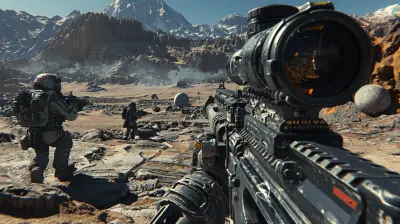
Competitive VR Shooters: Tactics for Success in Virtual Combat
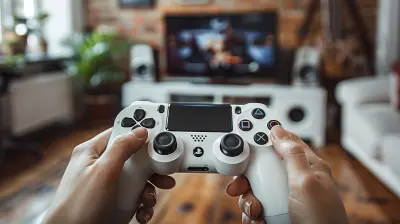
Essential Gaming Accessories Every Gamer Should Own

How to Travel Without Missing Your Gaming Routine
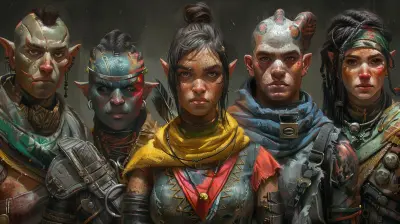
Creating Realistic Characters in Sci-Fi and Fantasy Worlds
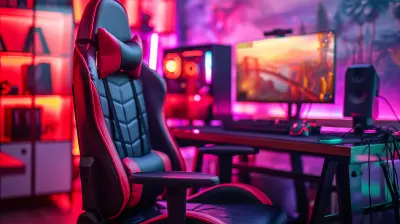
Best Gaming Chairs That Don’t Break the Bank

Benefits of Using a Gaming Desk with Built-In Monitor Stands

The Role of Strategy Guides in the Pre-Internet Retro Era